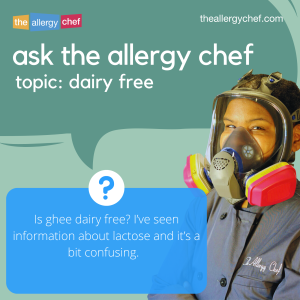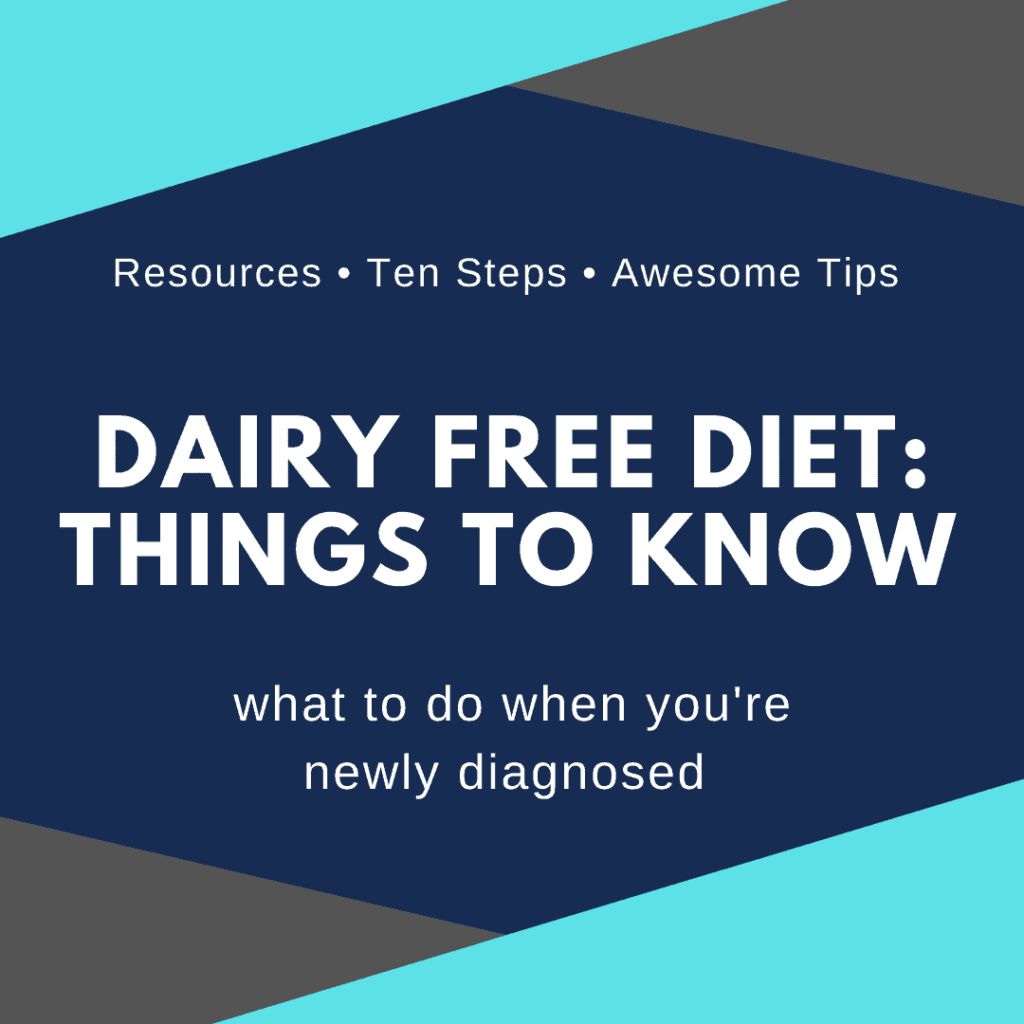If you’re reading this, you’d like to know if ghee is dairy free. The short answer is no, ghee is not dairy free. However, it’s a very special product known to have anti-inflammatory properties and a delicious nutty flavor. Let’s take a further look at ghee along with ghee alternatives.
What is Ghee?
In simple terms, ghee is a type of clarified butter and has a higher smoke point than that of traditional butter. It’s usually made from cow’s milk or buffalo milk, and has quite the history in Hindu tradition. The clarification process is mostly responsible for making ghee so interesting if you ask me. During the process, butter is simmered for a long time to allow the milk solids to separate from the butter fat. Additionally, it’s skimmed throughout the process. Through skimming, milk solids, whey, casein, and lactose are mostly removed.
What you’re left with is pure fat, and that liquid fat is what we call ghee. One of the benefits of ghee is its very high smoke point. It serves as a great cooking oil for high heat cooking such as using a wok where something like olive oil wouldn’t work well.
Who Should Not Consume Ghee
- Someone with a cow’s milk allergy (not the same as an intolerance).
- People who manage a severe casein sensitivity.
- People who are allergic to casein.
- Anyone who has had an allergic reaction to ghee in the past.
- Someone who follows a strict dairy free diet.
- Vegan Eaters (ghee is an animal product from bovine).
Ghee: What About Lactose-Intolerant Individuals
Many lactose-intolerant people are able to safely consume ghee. Unlike ordinary butter, with ghee, just about all of the lactose has been removed. Before consuming, make sure the ghee was made the traditional way, even if you’ll be eating homemade ghee. You’ll want to ensure that you have a pure milk fat product where all of the milk sugar has been removed.
Also know this: no two people are the same. Just because most people who are lactose intolerant are able to consume ghee doesn’t mean you’ll be able to. If you decided to give it a go, be sure to keep a detailed food journal and be on the lookout for any digestive issues or symptoms related to your lactose intolerance.
Cuisines That Incorporate Ghee
In recent years we’ve seen an explosion in fusion foods and elevated traditional foods. Some global cuisines love incorporating ghee into their recipes. If you’re a foodie at heart, make sure you know if something you order contains ghee. For those who are allergic to all dairy products, it can be helpful to carry a card such as the ones made by Equal Eats. Ensure that ghee is listed alongside other dairy based ingredients such as milk, butter, cream, and cheese.
- Sri Lankan Cooking
- Indian Cooking (sometimes called Indian butter, more common in Northern Indian dishes)
- South Asian Cooking
- Ayurvedic-Based Cooking
- Health & Wellness Focused Cooking
Plant-Based Fats
All liquid fats are created differently and can offer different health benefits. They’ll each have a different smoke point as well (many vegetable oils don’t do well at high temperatures for longer than a few minutes) . If you’re not able to consume ghee due to food allergies or dietary preferences, here are a few other options for you.
- Coconut Oil
- Avocado Oil
- Sesame Oil
- Olive Oil
- Sacha Inchi Oil
These five oils are each considered healthy fats and are also compatible with a vegan diet. In terms of flavour profile, the avocado oil and olive oil will be the best for everyday cooking. The other three oils each have a distinct flavour, and generally cost more as well.
Answering Your Ghee Questions
Can I use ghee for deep frying?
If you’re doing a shallow pan fry, ghee could be a good option, and it can add an extra rich flavor to the final product. In a proper deep fryer however, I’d use a different oil. Ghee is rather expensive and that’s one reason I wouldn’t use it for deep frying. Additionally, it does have a very specific taste, and butter isn’t generally used for deep frying. In terms of function, yes, it will work and has a great high smoke point of around 485 degrees F (250 degrees C) so it will hold up well for anything you’d want to deep fry.
Is ghee a good butter alternative for cookies?
Maybe. This comes down to personal preference. It’s also important to remember that regular butter has water content and isn’t pure fat. Ghee on the other hand is pure fat and you’d need to adjust the recipe to account for that difference.
Ghee can function properly in a cookie recipe, but know that it will have an effect on the final taste. If you absolutely love the taste of ghee, I think it’s worth trying. In fact, there are several ghee cookie recipes online that you can follow.
Is there a vegan ghee?
Not really. I’m sure some feel coconut oil may be like the vegan version of ghee, but the taste is wildly different. If you wanted to make something like ghee vegan, I suggest starting with a dairy free butter you enjoy. Clarify it, then add seasonings. You’ll need to ask someone who eats ghee regularly to describe it to you so you know which seasonings to add.
Is ghee Paleo?
Ghee could be considered a Paleo butter, however, there’s mixed opinions on the matter. With the Paleo diet, I’ve watched it change over the past decade plus as the “rules” are altered by “experts”. With a diet such as Paleo, it’s open to interpretation. Some argue that because ghee is derived from milk, it’s not OK. Others say that because of how it’s processed, it is OK. Ghee has a rich taste and ultimately, you’ll have to decide if it fits into your personal interpretation of the Paleo diet. What I can tell you is that it’s not like wheat where everyone agrees it’s not Paleo.
Also keep in mind, over restricting your diet and forcing yourself to follow loads of food rules (not due to an allergy or medical condition), for some people, can lead to an undue amount of stress. Asses the product, make a decision, know that the world won’t end because of said decision, and move on with your life. Don’t get caught up in the nitty gritty of it all if you’re not following the Paleo diet for medical reasons.
Can I use ghee in bulletproof coffee?
Yes, you can use ghee in bulletproof coffee. If you’ve never used ghee before, I don’t know that you’ll like a tablespoon of ghee in your coffee, so start with a small amount and give a taste first. In terms of function, it can absolutely function as other fats do in bulletproof coffee.
Is ghee the same thing as clarified butter?
Yes and no. Ghee is cooked for a longer period of time when compared to clarified butter. One could say it’s a type of clarified butter, but it’s not the exact same thing. With the extended cooking, ghee also has a more developed flavour when compared to standard clarified butter.
Can I use regular butter to make ghee at home?
Yes, but I’ve read that it should be unsalted butter. Additionally, for the best results, use grass-fed organic butter as your starting point. Since one of my kids has a severe dairy allergy, this isn’t something I’ve made or cooked with, but I wish you all the luck if this is your first batch.
Can I eat ghee if I have a cow’s milk protein allergy?
No, it’s not advised. Even though the milk protein content of ghee is considered low to none, it’s a milk product that can illicit a response from your immune system. Those who are allergic to cow’s milk should not consume ghee. However, if you were able to find a company that exclusively uses buffalo milk for their ghee, it may be worth trialing. There are also ghee-like products made from sheep and goat’s milk if you’re able to consume those.
I’m allergic to casein. Can I eat ghee?
No, it’s not advised. Even though most of the casein content is removed from ghee, there will still be some kind of presence, even at the 1% rate. That’s more than enough to cause an allergic reaction. With a casein allergy, you also won’t be able to consume buffalo milk ghee or other mammal based ghee products.
Is it possible to make ghee dairy-free if I’m making homemade ghee?
No, it’s not possible because the starting ingredient is usually grass-fed butter. No matter what type of milk butter you start with, it’s still from milk and therefore can’t be dairy free. You may be able to make it just about lactose free or just about casein free, but not dairy free. I say “just about” because there will always be some kind of remnants in the final product, even at 1%.


